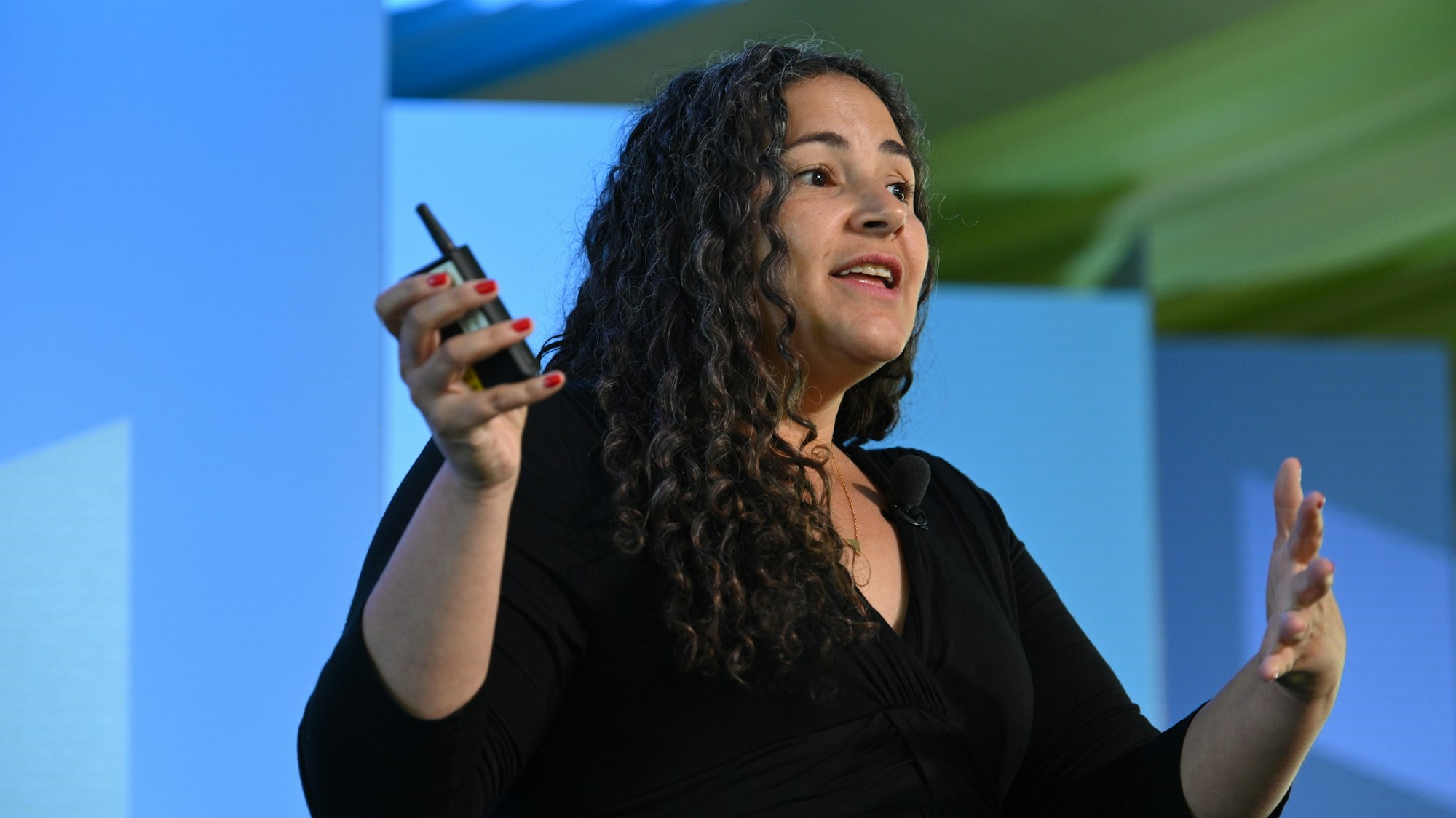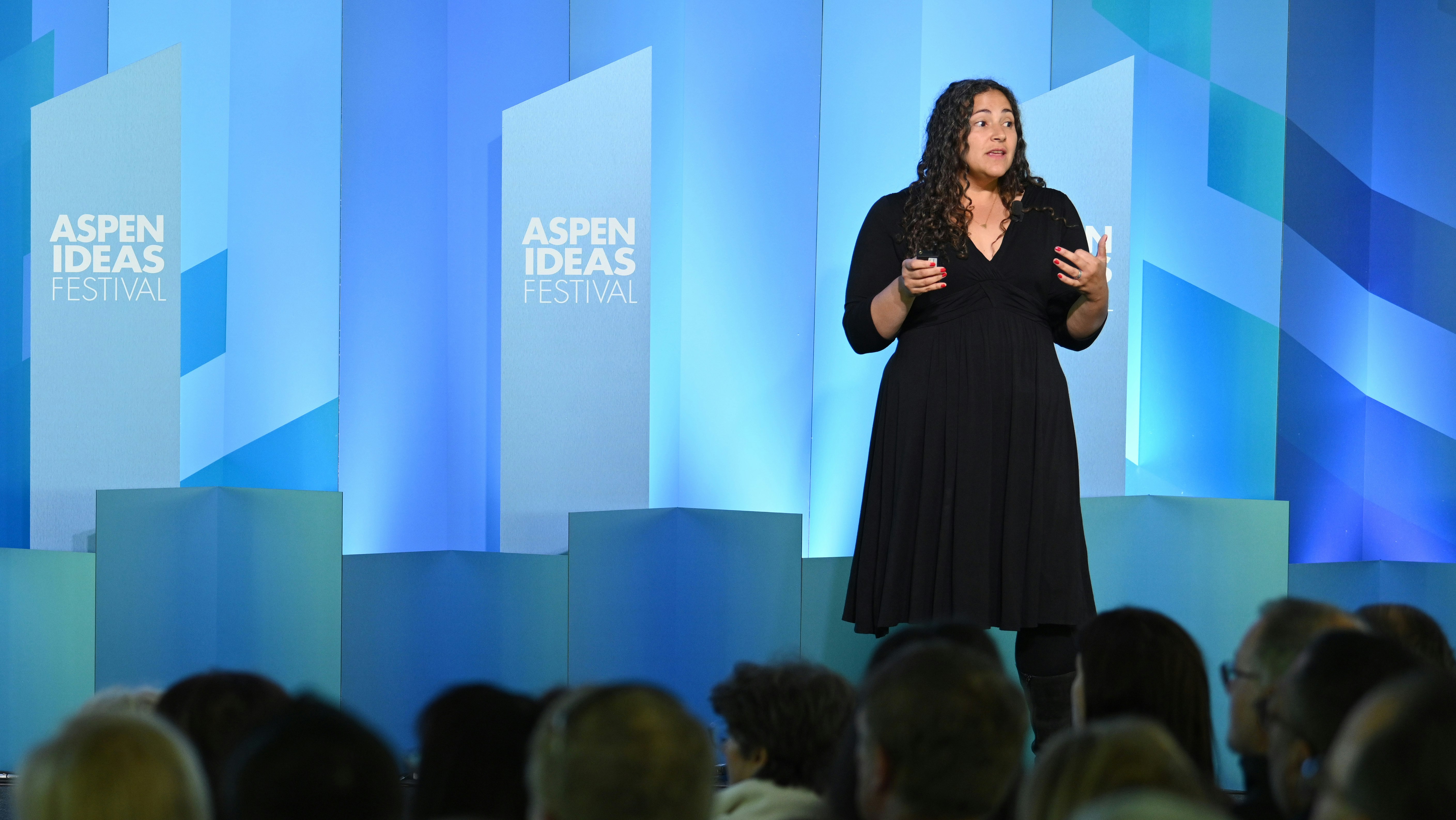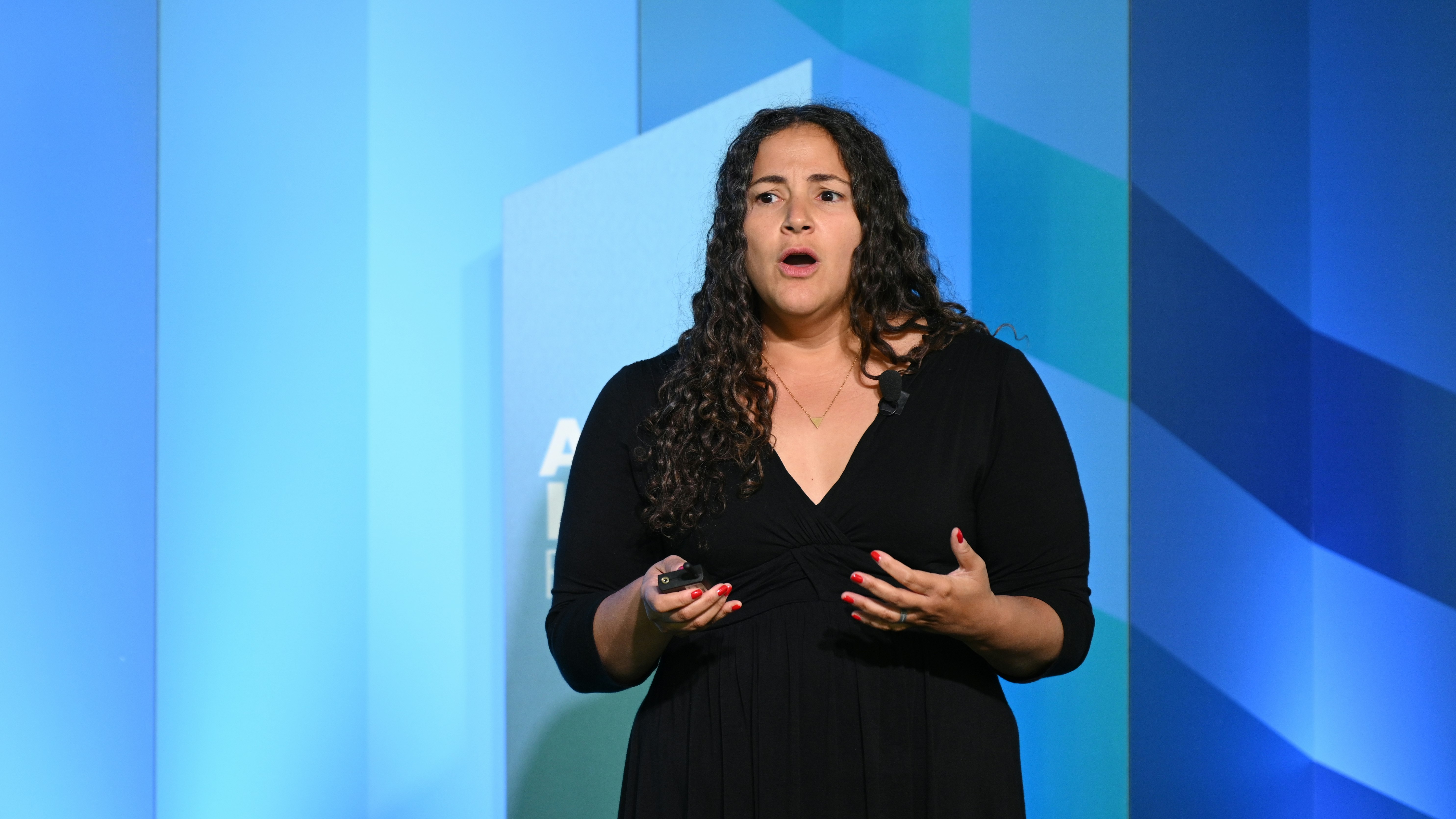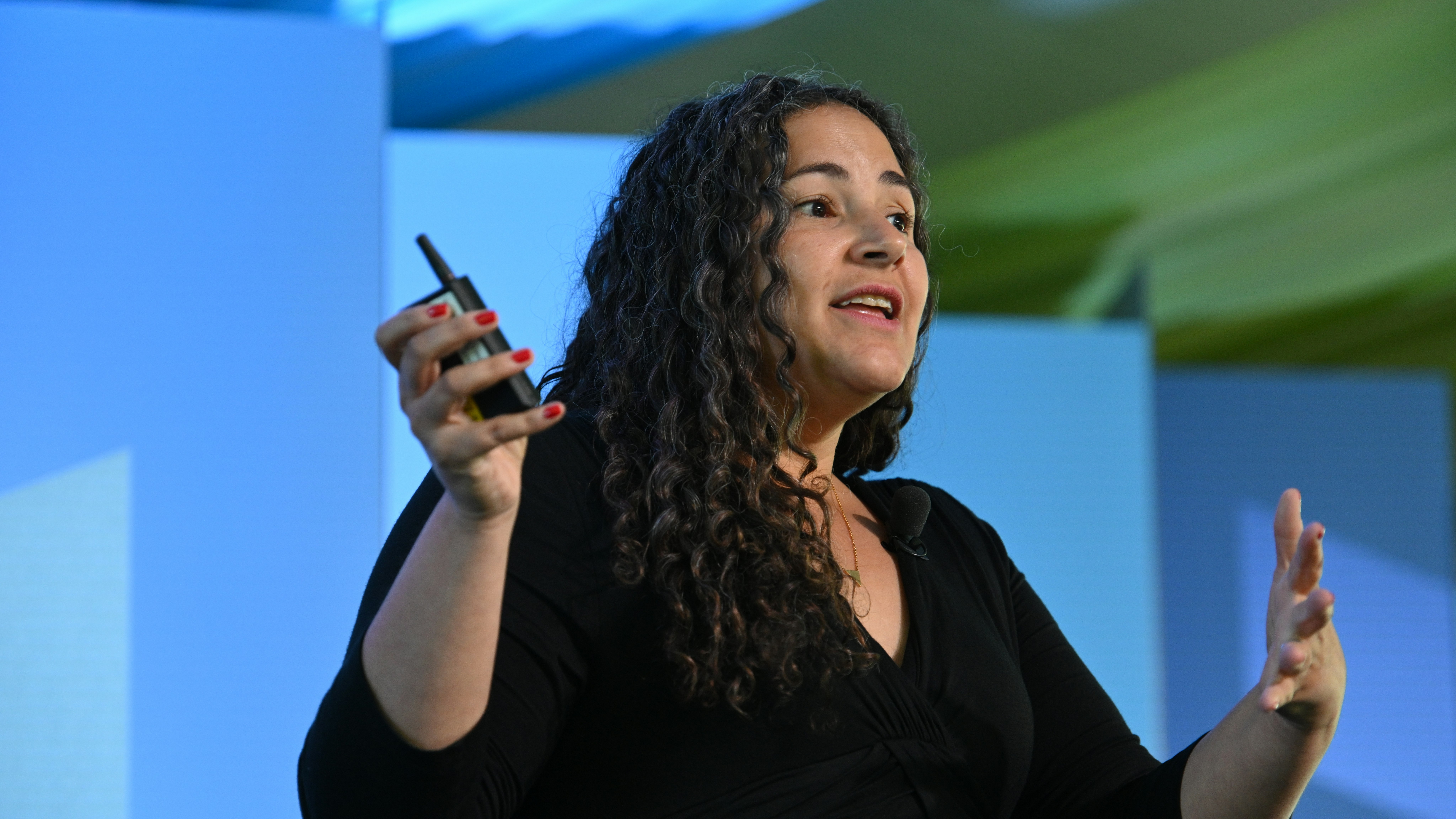
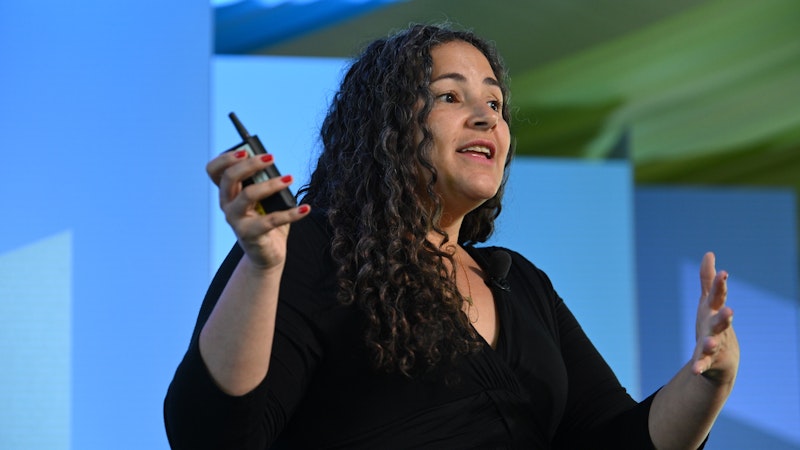
My Life Is Awesome, so Why Can't I Enjoy It?
Setup
Despite decades of economic growth, the population as a whole — and surprisingly — is slightly less happy. On paper, many have lives that appear awesome, but they're just not feeling it. Even those with great material and financial affluence are not as psychologically well-off as they could be. Laurie Santos, professor of psychology and teacher of Yale's most popular class ever, will explore this paradox. She'll argue that our brains have several dumb features that tend to get in the way of our well-being. On the upside, Santos says there are a series of simple mental hacks that everyone can implement to fight these biases and feel happier.
- 2019 Festival
- Health
- Society
- USA
- Full transcript
The kids aren’t alright
Success doesn’t always mean happiness, but it definitely helps, right? Laurie Santos, professor of psychology at Yale University, started noticing how a startling number of college students who are seemingly achieving their dreams are, nevertheless, deeply unhappy. She describes the phenomenon through stats and stories:
Our minds kind of suck
So what’s behind our inability to realize when things are good? “The problem,” says Laurie Santos, “has to do with our minds. Our minds, quite frankly, kind of suck.” We struggle to enjoy even great moments in our lives because of glitches in how our brains function.
Santos goes on to explain that it’s impossible to “fix” our brains and eliminate the glitches. Our brains are hardwired in certain ways that we can’t change. But, Santos says, if we understand how our minds do what they do, we can develop ways to work around them.
Hedonic adaptation, or why the good stops feeling good
One glitch we’ve probably all experienced, says Laurie Santos, is called hedonic adaptation. The first time we experience something amazing is often the only time we feel that way about that experience, and that’s hedonic adaptation. Our first kiss, our first plane ride, a fantastic meal — even though we may have similar experiences again, they never quite feel the same. Santos explains how our brains get used to the good things in life over time:
Three tips to becoming happier
We can’t change our brains, but we can notice what they’re doing and fight back, says Laurie Santos. She offers three strategies that anyone can use to become a happier, healthier person:
Take Action
- Spend money on experiences
- Savor things; don't rush
- Be grateful—happy people tend to be grateful people
Spending money on experiences could mean a trip somewhere instead of a new car. But, Santos explains, don’t rush through those experiences. Take time to fully enjoy them. And don’t just be grateful for your material possessions, appreciate everything the people in your life do for you as well.
Don’t let your brain contextualize
Why are third place Olympians usually happier than those who took silver, even though they placed lower on the podium? Laurie Santos says this is because our brains are constantly contextualizing our experiences:
Even though they both just won Olympic medals, silver medalist are often upset they didn’t get first while bronze medalist are just happy to be on the podium. The solution to our brains telling us that what we have isn’t enough? According to Laurie Santos, we just have to switch things up every once in a while.
Big IdeaWe have to introduce variety, even for the good things, to notice the best things in life.Laurie Santos
If our brains are constantly contextualizing what we do, then changing what we do will allow our brains to help us see things in a greater context. And that, according to Santos, can improve the happiness we feel.
Learn More
Additional Information
Explore More
Health


Being a parent today is full of stress, pressure and information overload. Experts offering advice are everywhere, and for some parents, the wealth of available resources can...

Capitalism has delivered prosperity for many, but not for all. Disparities according to gender, race, and geography have left millions behind, while rising concentrations of w...


The quest for work-life balance is never ending for many of us. The advice in this talk from the 2023 Aspen Ideas Festival still holds a lot of relevance, so we’re bringing it...


Living as a trans person in America comes with its share of challenges, which are sometimes even life-threatening. But some say it can also open up access to incredible freedo...


The rapid development of the Covid-19 vaccine and the ramp-up of manufacturing and global distribution were unprecedented feats of medical coordination. But those on the insid...

Since 2014, Aspen Ideas: Health has welcomed nearly 800 inspiring women leaders to our stages to share their bold approaches to better health. In honor of Women's History Mont...

Global conflicts and health crises have put into stark relief deeply-ingrained gender roles in society. Yet the past years have also seen record-high numbers of women running...


Creativity is as intrinsic to our species as any of our basic instincts, says Debbie Millman, designer and curator. But for millions of people in the United States, the abilit...

The people in our lives shape who we are. But great relationships don’t just happen — they take care, intention, and ongoing effort. How do you know when to let go, adjust exp...


Advances in medicine and healthy living mean that more and more people will live to be 100. But just because their bodies can last doesn’t mean their bank accounts will keep u...


In the early days of cable television, there wasn’t a single network aimed at Black audiences. Sheila Johnson and her husband at the time saw an opening, and put all their hop...

Our attitudes, habits, pleasures, and responsibilities shift across the generations, influencing the health challenges we face and how we respond to them. Expectations about h...

Of course, Black history shouldn’t just be a month-long nod on our yearly calendar — it is inextricable from American history and fundamental to the very soul of our nation an...


Owning a professional sports team is not for the faint of heart. Results are volatile and wins and losses come with the strong emotions of a city’s fan base. But it’s a sound...

Setting audacious goals helps to redefine what is achievable in health, medicine, and science. As we deepen understanding of the human genome, unravel the mysteries of the bra...


Looking around and experiencing the suffering and injustice in the world can make it difficult to believe that happiness exists. But the Judeo-Christian tradition teaches that...


This episode is from the 2022 Aspen Ideas Festival, but we’re bringing it back because it’s still as relevant as ever. Though it can sometimes feel like conflict and discord i...

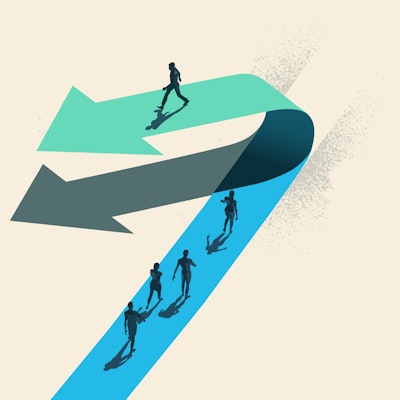
Sir Ken Robinson believed that as a society, we tragically underestimate and underutilize human ability. We create linear systems for our minds modeled on industry and manufac...

As we wrap-up another year of elevating big ideas at Aspen Ideas: Health, we're excited to share the 15 most-watched sessions from the event. These conversations with inspirin...


Young people in America are struggling. The causes are varied and may not be entirely clear, but the results are unfortunately unmistakable. Many of our youth feel lonely, iso...


